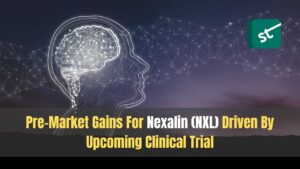Nexalin Technology, Inc. (NASDAQ: NXL) stock is on a notable surge this current session, following the announcement of a pivotal study. As of the latest check, NXL shares were trading 19.55% higher on the US stock charts at $2.63. This positive market response underscores the potential impact of the company’s groundbreaking research.
Innovative Research Publication
Nexalin (NXL) did a research titled “Altered Neuronal Activity Patterns of the Prefrontal Cortex in Alzheimer’s Disease After Transcranial Alternating Current Stimulation (tACS): A Resting-State Functional Magnetic Resonance Imaging Study,” which was published in the Journal of Alzheimer’s Disease.
This study builds on earlier results from Nexalin’s Deep Intracranial Frequency Stimulation (DIFS) studies by confirming the efficacy of non-invasive neurostimulation techniques in enhancing cognitive function in individuals with moderate Alzheimer’s disease (AD).
Research Methods and Results
Over the course of 30 one-hour sessions spread over three weeks, 46 participants were randomly randomized to receive either a placebo or actual DIFS treatment. The study used resting-state functional magnetic resonance imaging (rs-fMRI) to track changes in brain activity.
The findings showed that Nexalin’s exclusive DIFS technology had a major impact on neuronal activity in important brain areas, establishing it as a secure, non-pharmacological therapy option for Alzheimer’s.
Addressing a Global Challenge
While existing treatments primarily alleviate symptoms, Nexalin’s DIFS technology demonstrates the capacity to modulate brain activity and restore metabolic functions, paving the way for potentially transformative treatments. The recent findings bolster NXL’s commitment to improving cognitive outcomes, emphasizing that DIFS not only enhances mental function but also exhibits favorable tolerability, even in elderly populations.
By linking brain activity with blood flow and glucose metabolism, DIFS may address some of the core causes of cognitive decline in Alzheimer’s patients, offering hope for sustained cognitive improvement. This study represents a significant step forward for Nexalin’s DIFS technology, reinforcing the promise of non-invasive brain stimulation in the treatment of Alzheimer’s disease.











